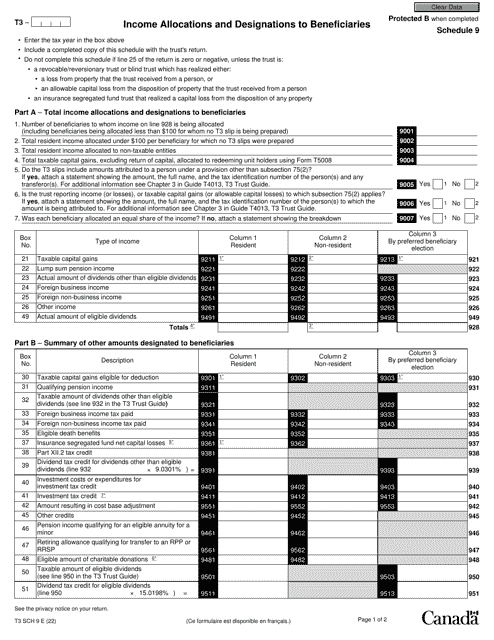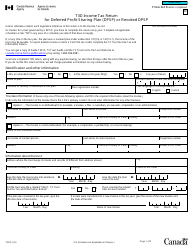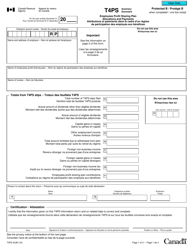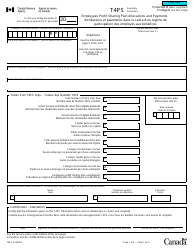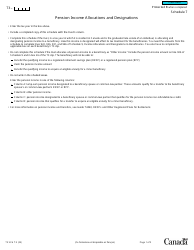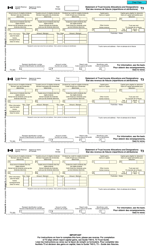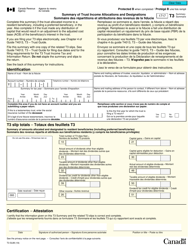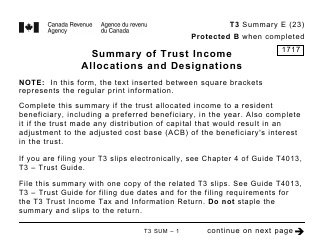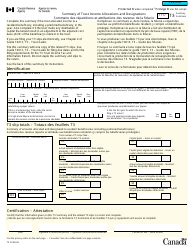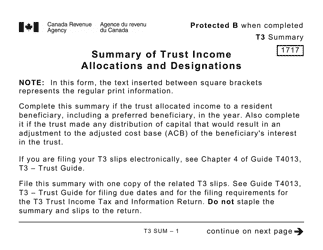This version of the form is not currently in use and is provided for reference only. Download this version of
Form T3 Schedule 9
for the current year.
Form T3 Schedule 9 Income Allocations and Designations to Beneficiaries - Canada
Form T3 Schedule 9 Income Allocations and Designations to Beneficiaries in Canada is used to allocate and designate income to beneficiaries of a trust. It helps determine how much income each beneficiary is entitled to receive from the trust.
The executor or trustee of a Canadian estate will file the Form T3 Schedule 9 Income Allocations and Designations to Beneficiaries.
FAQ
Q: What is Form T3 Schedule 9?
A: Form T3 Schedule 9 is a tax form used in Canada to report income allocations and designations to beneficiaries.
Q: Who needs to fill out Form T3 Schedule 9?
A: Form T3 Schedule 9 must be completed by the trustee or executor of an estate or trust.
Q: What is the purpose of Form T3 Schedule 9?
A: The purpose of Form T3 Schedule 9 is to allocate and designate income earned by an estate or trust to the beneficiaries.
Q: What information is required on Form T3 Schedule 9?
A: Form T3 Schedule 9 requires information about the estate or trust, the beneficiaries, and the allocation of income.
Q: When is the deadline to file Form T3 Schedule 9?
A: The deadline to file Form T3 Schedule 9 is the same as the deadline for filing the T3 return, which is 90 days after the end of the trust's or estate's tax year.
Q: Are there any penalties for not filing Form T3 Schedule 9?
A: Yes, there are penalties for not filing Form T3 Schedule 9, including late filing penalties and interest charges on any amounts owed.
Q: Can Form T3 Schedule 9 be filed electronically?
A: Yes, Form T3 Schedule 9 can be filed electronically using the CRA's My Account service or through authorized electronic filers.
Q: Is Form T3 Schedule 9 required for all trusts and estates?
A: No, Form T3 Schedule 9 is only required for trusts and estates that have allocated or designated income to beneficiaries.
Q: What should I do if I need help filling out Form T3 Schedule 9?
A: If you need help filling out Form T3 Schedule 9, you can contact the Canada Revenue Agency or consult a tax professional.
